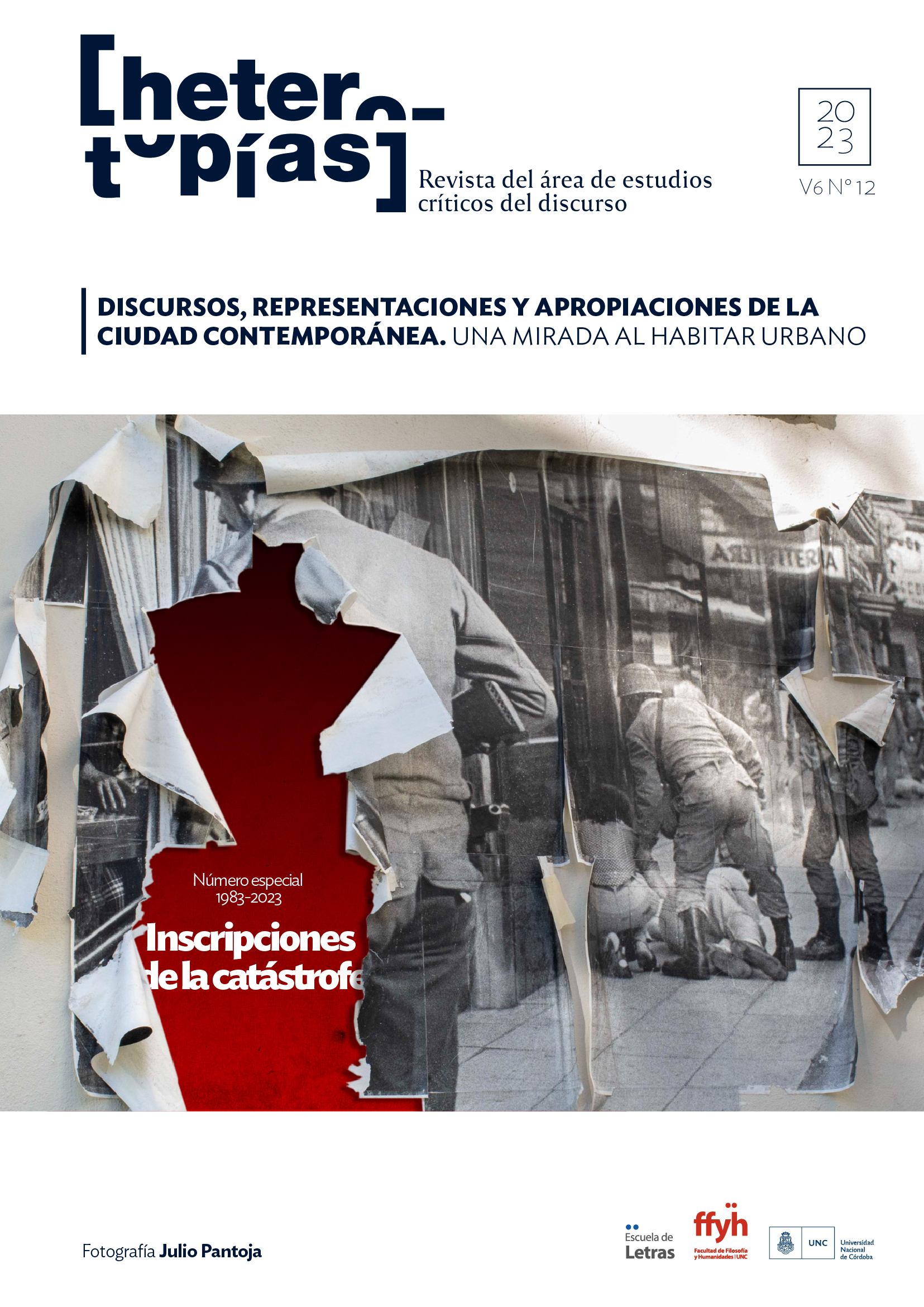A reading autobiography between dictatorship and democracy
Main Article Content
Abstract
During the military dictatorship that governed Argentina between March 24, 1976 and December 10, 1983, a systematic censorship plan was developed (Invernizzi & Gociol, 2002) in the cultural field that included a succession of decrees and other resolutions prohibiting reading various publications. Numerous works have addressed the issue, recovering journalistic and documentary information from the dictatorship itself where lists of publications are made explicit (literary, theoretical, school books, cultural magazines, among others) and where in some cases arguments are put into play that seek to justify the prohibitions. in terms of moral values and “being Argentine” (Avellaneda, 1986). Both in primary and secondary education and in higher education, this curtailment produced an outdated level of school knowledge (Tedesco et al, 1987) and a certain obscurantism in university knowledge, affecting the quality of the training of teachers and researchers, which was reinforced by the exclusion of professors from the university cloisters, many of them in exile, missing or teaching in private spaces, in what was called “catacomb university” (Kaufmann, 2001, Casareto & Daleo, 2020). Books for boys, girls and adolescents as well as educational materials for all educational levels (Pesclevi, 2014), including the university, were part of the censorship lists, which had an effect on the representations about knowledge and the experiences of reading and training of adolescents who go through both the times of dictatorship and those of the so-called democratic transition (Velázquez Ramírez, 2015) through different educational levels. Assuming reading autobiography as a genre (Papalini (coord.), 2016), this article presents a journey between dictatorship and democracy, recovering references to prohibited readings and “allowed” readings (Bombini, 2020), giving their effects on the training processes. and construction of subjectivity.
Downloads
Article Details

This work is licensed under a Creative Commons Attribution-NonCommercial-ShareAlike 4.0 International License.
Those authors who have publications with this journal, accept the following terms: Those authors who have publications with this journal, accept the following terms:
a. The authors will keep their copyright and guarantee to the journal the right of first publication of their work, which will be simultaneously subject to the Creative Commons Attribution - Non-Commercial - Share Alike (by-nc-sa) Attribution License; no commercial use of the original work or any derivative works is allowed, the distribution of which must be done with a license equal to the one that regulates the original work.
b. Authors may adopt other non-exclusive license agreements for the distribution of the published version of the work (e.g., deposit it in an institutional telematic archive or publish it in a monographic volume) provided that the initial publication in this journal is indicated.
c. Authors are allowed and recommended to disseminate their work through the Internet (e.g. in institutional telematic archives or on their website) before and during the submission process, which may lead to interesting exchanges and increase the number of citations of the published work. (See The effect of open access).
References
Avellaneda, A. (1986). Censura, autoritarismo y cultura: Argentina 1960-1983 (tomos 1 y 2). Buenos Aires: Centro Editor de América Latina.
Bruner, J. (1986). Realidad mental y mundos posibles. Los actos de la imaginación que dan sentido a la experiencia. Barcelona: Gedisa.
Casareto, S. & Daleo, G. (comp.) (2020). Dictadura y universidad. La Facultad de Filosofía y Letras en tiempos del Estado terrorista. Buenos Aires: Eudeba.
Feliú, J. (2007). Nuevas formas literarias para las ciencias sociales: el caso de la autoetnografía. Athenea Digital, 12, 262-271.
Gociol, J. & Invernizzi, H. (2002). Un golpe a los libros: represión en la cultura durante la última dictadura militar. Buenos Aires: Eudeba.
Kaufmann, C. (2001). Los condenados al corral. Depuraciones bibliográficas en la FCE-UNER”. (Kaufmann, C. [dir.]), Dictadura y educación. Depuraciones y vigilancia en las Universidades Nacionales Argentinas. Buenos Aires: Miño y Dávila.
Klimovsky, G. (1983). Grupos de estudio y universidad de catacumbas. Perspectiva universitaria, 11/12. Buenos Aires.
Papalini, V. (coord.) (2016). Forjar un cuarto propio. Aproximaciones autoetnográficas a las lecturas de infancia y adolescencia. Villa María: EDUVIM.
Pesclevi, G. (2013). Libros que muerden. Literatura infantil y juvenil censurada durante la última dictadura cívico-militar 1976-1983. Buenos Aires: Biblioteca Nacional.
Piacenza, P. (2017). Años de aprendizaje. Subjetividad adolescente, literatura y formación en la Argentina de los sesenta. Buenos Aires. Miño y Dávila.
Postay, V. (2006) Algunos usos de los textos de Ciencias Sociales en las escuelas secundarias de la provincia de cordobesas durante el último período dictatorial. (Kaufmann, C. [dir.]), Dictadura y educación. Los textos escolares en la historia argentina reciente. Buenos Aires. Miño y Dávila.
Sarlo, B. (2005). Tiempo pasado. Cultura de la memoria y giro subjetivo. Una discusión. Buenos Aires: Siglo XXI Editores.
Suasnabar, C. (2001). “Revista Perspectiva Universitaria. Voces disidentes en dictadura”. (Kaufmann, C. [dir.]), Dictadura y educación. Depuraciones y vigilancia en las Universidades Nacionales Argentinas. Buenos Aires: Miño y Dávila.
